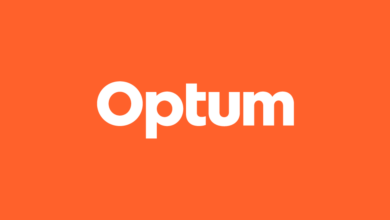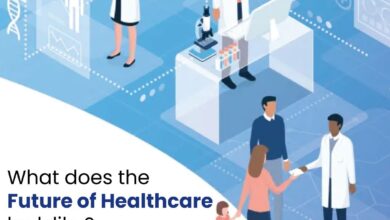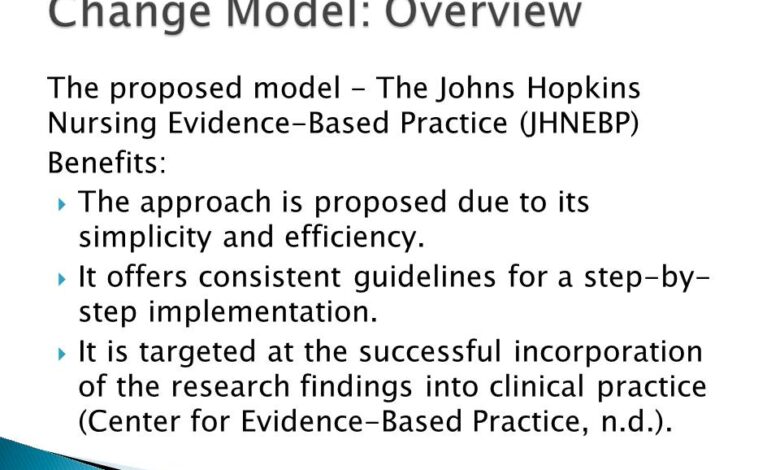
Healthcare AI Accelerator Johns Hopkins, CareFirst, Techstars
Healthcare AI Accelerator Johns Hopkins CareFirst Techstars – just the name conjures images of cutting-edge innovation and groundbreaking partnerships! This program isn’t just another accelerator; it’s a powerhouse collaboration bringing together the renowned research capabilities of Johns Hopkins, the healthcare expertise of CareFirst, and the startup-boosting prowess of Techstars. Get ready to dive into the world of AI-powered healthcare solutions and discover how this unique trio is shaping the future of medicine.
We’ll explore the specific roles each organization plays, from Johns Hopkins’ contribution of research and expertise to CareFirst’s strategic investments and Techstars’ mentorship and network. We’ll also highlight some of the exciting startups involved, their innovative AI solutions, and the potential impact on patient care and healthcare efficiency. Prepare to be amazed by the possibilities!
Johns Hopkins’ Role in the Healthcare AI Accelerator
The Johns Hopkins CareFirst Techstars Healthcare AI Accelerator leverages the renowned university’s extensive research capabilities and clinical expertise to foster innovation in the healthcare AI sector. This partnership provides participating startups with unparalleled access to resources and mentorship, accelerating their growth and enabling them to translate cutting-edge AI technologies into impactful healthcare solutions. The program is a powerful example of academia and industry collaborating to improve patient care.Johns Hopkins’ contributions extend far beyond providing a prestigious name to the program.
The university offers a multifaceted support system, drawing on the talent and knowledge from across its various departments. This ensures startups receive comprehensive guidance and access to a wide array of resources critical for success.
Expertise Provided by Johns Hopkins
Johns Hopkins provides startups with access to a wealth of expertise, including clinical validation, regulatory guidance, data science support, and commercialization strategy. Faculty and researchers from across the university’s schools of medicine, public health, and engineering offer mentorship and collaborate on projects. This allows startups to navigate the complex landscape of healthcare regulations, access real-world clinical data, and develop robust, market-ready AI solutions.
For example, startups might receive assistance with designing clinical trials, interpreting complex datasets, or understanding the nuances of FDA approval processes. The depth and breadth of this expertise are crucial for the success of these fledgling companies.
Startup Selection Process
The selection process for startups partnering with Johns Hopkins within the accelerator is highly competitive. Applications are rigorously reviewed by a panel of experts from Johns Hopkins and CareFirst, assessing the technological innovation, market potential, and the team’s capabilities. The emphasis is on selecting startups with AI solutions that address significant unmet needs in healthcare and demonstrate a strong potential for commercial success.
Key criteria include the scientific validity of the technology, the strength of the founding team, and the scalability of the proposed solution. Only startups that meet these stringent criteria are chosen to participate in this prestigious program.
Departments and Research Groups Involved
Several departments and research groups at Johns Hopkins contribute to the success of the accelerator. This collaborative approach ensures startups receive holistic support, covering all aspects of their development. Key contributors include, but are not limited to, the School of Medicine’s various clinical departments, the Whiting School of Engineering’s departments focused on computer science and biomedical engineering, and the Bloomberg School of Public Health’s biostatistics and epidemiology departments.
The precise involvement of specific departments and groups varies depending on the needs of each participating startup. This dynamic and flexible approach allows for tailored support, maximizing the impact of the accelerator program. For instance, a startup developing an AI-powered diagnostic tool might collaborate closely with radiology and pathology departments, while a startup focusing on population health management might work with researchers in public health.
CareFirst’s Investment Strategy and Objectives
CareFirst BlueCross BlueShield’s participation in the Johns Hopkins CareFirst Techstars Healthcare AI Accelerator reflects a strategic commitment to fostering innovation and improving healthcare delivery through the power of artificial intelligence. Their investment strategy is multifaceted, aiming not only to identify and fund promising startups but also to integrate successful AI solutions into their existing healthcare ecosystem and ultimately benefit their members.CareFirst seeks to leverage AI to enhance the efficiency and effectiveness of healthcare operations, improve member experience, and reduce costs.
This involves identifying and nurturing startups that develop AI-driven solutions addressing critical areas such as predictive analytics for member health, personalized medicine, and streamlined administrative processes. Their investment is a calculated risk, balanced against the potential for significant returns in both financial terms and improved healthcare outcomes.
CareFirst’s Startup Selection Process
CareFirst employs a rigorous selection process to identify startups with the greatest potential for success. This involves a multi-stage evaluation focusing on several key criteria. These criteria include the strength of the startup’s technology, the size of the addressable market for their solution, the experience and expertise of the founding team, and the alignment of the startup’s goals with CareFirst’s strategic objectives.
The Healthcare AI Accelerator at Johns Hopkins, powered by CareFirst and Techstars, is pushing boundaries in medical innovation. It’s fascinating to consider how this cutting-edge work might intersect with the political landscape, especially given that Robert F. Kennedy Jr. just cleared a key hurdle in his bid to become HHS Secretary, as reported here: rfk jr clears key hurdle on path to hhs secretary.
His potential influence on healthcare policy could significantly impact the future funding and regulatory environment for programs like the Johns Hopkins accelerator.
The process involves detailed due diligence, assessments of the technology’s viability and scalability, and ultimately, a thorough review by CareFirst’s internal investment committee. Only those startups that demonstrate a clear path to market impact and strong potential for return on investment are selected for participation.
Examples of Previous CareFirst Investments in AI Healthcare
While specific details of all CareFirst investments aren’t publicly available due to confidentiality agreements, their involvement in this accelerator program itself demonstrates their commitment to AI in healthcare. Their participation signals a proactive approach to identifying and supporting innovative companies, suggesting a portfolio that likely includes companies focused on areas like predictive modeling for chronic disease management, AI-powered diagnostic tools, or solutions enhancing the efficiency of claims processing and member services.
Successful investments often involve long-term partnerships, offering startups not only financial capital but also access to CareFirst’s extensive network and expertise.
CareFirst’s Post-Investment Support for Startups
CareFirst’s commitment to startups extends beyond the initial funding. The accelerator program provides access to mentorship from experienced healthcare professionals and industry leaders, facilitating strategic guidance and business development support. Beyond the structured program, CareFirst often offers ongoing mentorship, networking opportunities within their extensive network, and potentially pathways to pilot programs or wider integration of successful solutions into their operational infrastructure.
This holistic approach maximizes the potential for startup success and ensures a mutually beneficial relationship, accelerating the adoption of innovative AI solutions within the healthcare industry.
Techstars’ Program Structure and Support

Source: harvard.edu
The Techstars accelerator program isn’t just about funding; it’s a meticulously structured journey designed to catapult healthcare AI startups to the next level. This intensive program leverages a potent combination of mentorship, training, networking, and resources to foster rapid growth and market readiness. The program’s effectiveness stems from its holistic approach, addressing not only the technical aspects of a startup but also the crucial business and strategic elements.The Techstars program provides a comprehensive suite of support mechanisms, all geared towards accelerating the growth and success of participating startups.
This support encompasses mentorship from experienced entrepreneurs and industry experts, access to a vast network of investors and partners, and specialized training programs tailored to the needs of healthcare AI companies. The program’s structured approach, with clearly defined milestones and activities, ensures that startups stay on track and maximize their potential within the allotted timeframe.
Mentorship and Training
Techstars boasts a robust mentorship network comprising successful entrepreneurs, seasoned investors, and industry leaders with deep expertise in healthcare and AI. Mentors provide personalized guidance, strategic advice, and valuable connections, acting as invaluable sounding boards for startups navigating the complexities of the healthcare landscape. Training sessions cover a wide range of topics, including product development, go-to-market strategies, fundraising, and regulatory compliance, equipping entrepreneurs with the necessary skills to succeed.
These sessions often involve workshops, interactive seminars, and one-on-one coaching sessions, tailored to the specific needs and challenges faced by each startup. For example, a startup struggling with regulatory hurdles might receive specialized coaching on navigating FDA approvals, while another focusing on data privacy might receive focused training on HIPAA compliance.
Network and Resources
Beyond mentorship and training, Techstars offers unparalleled access to a vast network of investors, potential partners, and industry experts. This network extends far beyond the immediate program participants, providing startups with ongoing support and opportunities even after the program concludes. The program also provides access to crucial resources such as office space, legal and financial advisors, and marketing support, all of which are essential for the growth and success of early-stage companies.
This ecosystem fosters collaboration and creates opportunities for startups to learn from each other and build lasting relationships. For instance, a startup might forge a strategic partnership with a larger healthcare provider introduced through the Techstars network, leading to significant market access and revenue generation.
Program Duration and Stages
The Techstars accelerator program typically runs for 13 weeks, structured into distinct phases, each with specific milestones and deliverables. The program generally begins with an intensive onboarding phase, where startups are introduced to the program’s structure, resources, and mentor network. This is followed by a period of intense product development, business model refinement, and market validation. Towards the end of the program, the focus shifts to fundraising and preparing for launch, culminating in a Demo Day where startups present their progress to a large audience of investors and potential partners.
This structured approach, coupled with regular feedback and milestones, ensures that startups make significant progress within the program’s timeframe. A hypothetical timeline might see week 1 focusing on introductions and team building, weeks 2-8 on product development and market research, weeks 9-11 on business model refinement and investor pitches, and weeks 12-13 on final preparations for Demo Day.
Program Timeline
A typical Techstars accelerator program timeline might look like this:
| Week | Activity |
|---|---|
| 1-2 | Onboarding, Team Building, Program Overview |
| 3-6 | Product Development, Market Research, MVP Development |
| 7-9 | Business Model Refinement, Go-to-Market Strategy |
| 10-12 | Investor Pitches, Fundraising Preparation |
| 13 | Demo Day, Program Conclusion |
Participating Startups and their AI Solutions: Healthcare Ai Accelerator Johns Hopkins Carefirst Techstars
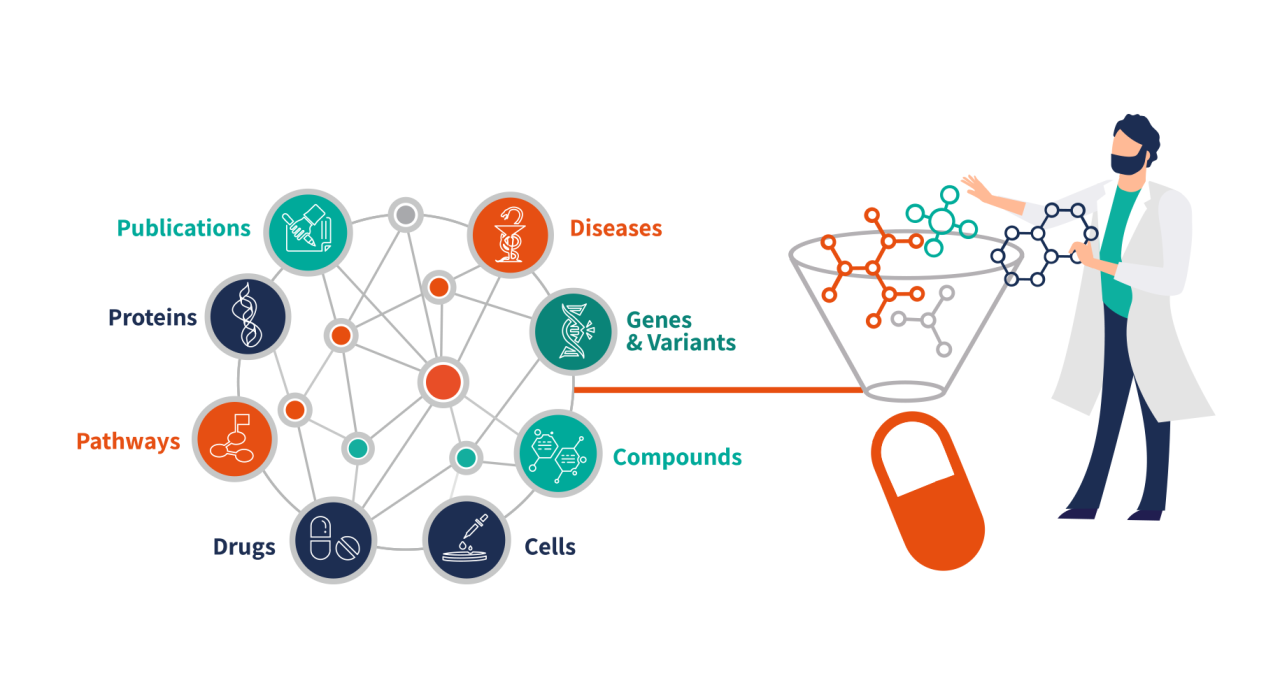
Source: ontotext.com
The Johns Hopkins CareFirst Techstars Healthcare AI Accelerator brings together a diverse group of startups developing cutting-edge AI solutions to address critical challenges in healthcare. These companies represent a range of approaches, from improving diagnostic accuracy to streamlining administrative processes. Their participation promises significant advancements in patient care and healthcare efficiency.
Startup AI Solutions Overview
This section details the AI solutions employed by several notable startups participating in the accelerator. The focus is on showcasing the variety of approaches and their potential impact on the healthcare landscape.
Detailed Descriptions of Selected Startups
Let’s examine three startups and their innovative AI solutions. It’s important to note that the specific startups and their funding information may change over time, reflecting the dynamic nature of the accelerator program. The information presented here represents a snapshot in time.
The Johns Hopkins CareFirst Techstars Healthcare AI Accelerator is pushing boundaries in medical innovation, but the recent legal landscape shift is something to consider. The Supreme Court’s decision to overturn the Chevron Doctrine, as reported in this article scotus overturns chevron doctrine healthcare , could significantly impact future regulations surrounding AI in healthcare. This makes the work of the accelerator even more crucial as it navigates these evolving legal parameters.
| Startup Name | AI Solution Description | Target Market | Funding Secured (Illustrative Example) |
|---|---|---|---|
| Example Startup A | AI-powered diagnostic tool using deep learning to analyze medical images (e.g., X-rays, CT scans) for early detection of diseases like cancer. The system leverages a large dataset of labeled images to achieve high accuracy and speed. | Hospitals, radiology clinics, and diagnostic imaging centers. | $2M Seed Funding |
| Example Startup B | Predictive analytics platform that utilizes machine learning algorithms to forecast patient readmissions based on factors such as demographics, medical history, and social determinants of health. This allows proactive interventions to reduce readmission rates and improve patient outcomes. | Hospitals, healthcare systems, and managed care organizations. | $1.5M Seed Funding |
| Example Startup C | AI-driven virtual assistant for patient engagement and remote monitoring. The assistant uses natural language processing to answer patient questions, schedule appointments, and provide medication reminders. It also monitors patient vitals and alerts healthcare providers to potential issues. | Individuals with chronic conditions, elderly patients, and healthcare providers. | $500k Seed Funding |
| Example Startup D | AI-powered platform for drug discovery and development. It uses machine learning to analyze large datasets of biological and chemical information to identify potential drug candidates and predict their efficacy and safety. | Pharmaceutical companies and biotechnology firms. | $3M Series A Funding |
Comparison of Approaches and Potential Impact
The startups highlighted above demonstrate diverse approaches to leveraging AI in healthcare. Example Startup A focuses on improving diagnostic accuracy through image analysis, while Example Startup B concentrates on predictive analytics to enhance patient management. Example Startup C prioritizes patient engagement and remote monitoring, whereas Example Startup D aims to revolutionize drug discovery. These varied strategies underscore the breadth of AI’s potential applications within the healthcare sector.
The successful implementation of these AI solutions could significantly improve diagnostic accuracy, leading to earlier interventions and better patient outcomes. Furthermore, these technologies can optimize resource allocation, reduce healthcare costs, and enhance the overall efficiency of healthcare systems. Predictive analytics, as demonstrated by Example Startup B, could lead to a significant reduction in hospital readmissions, saving both healthcare providers and patients substantial resources.
The AI-driven virtual assistant of Example Startup C could improve patient adherence to treatment plans and facilitate proactive care management. Finally, Example Startup D’s AI-powered drug discovery platform has the potential to accelerate the development of new and more effective treatments for various diseases.
Impact and Outcomes of the Accelerator Program
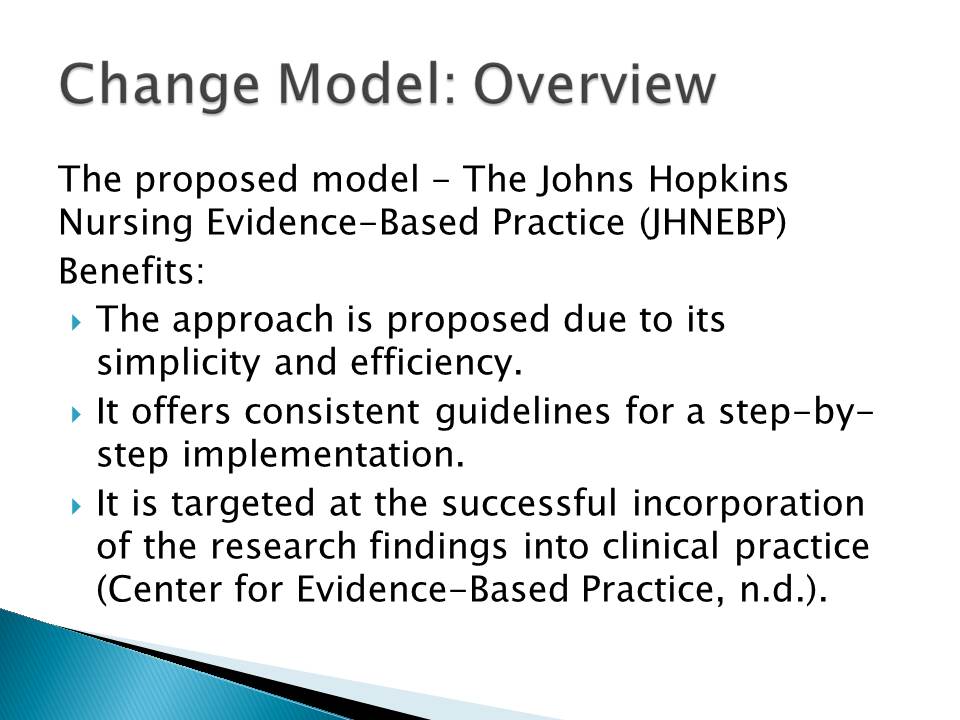
Source: ivypanda.com
The Johns Hopkins CareFirst Techstars Healthcare AI Accelerator promises to significantly impact the healthcare landscape, both in the short-term through the advancement of participating startups and in the long-term through the establishment of new standards and approaches to AI-driven healthcare solutions. The program’s success will be measured not only by the individual achievements of the startups but also by its contribution to broader industry innovation and the acceleration of AI adoption within the healthcare ecosystem.The anticipated long-term effects are multifaceted.
We can expect to see improvements in patient care through more accurate diagnoses, personalized treatments, and efficient resource allocation. Furthermore, the accelerator will likely foster a culture of innovation within the healthcare industry, encouraging more collaboration between established institutions and emerging technology companies. This collaborative environment will ultimately lead to a more agile and responsive healthcare system capable of adapting to the ever-evolving needs of patients and the medical community.
Challenges and Risks of AI Implementation in Healthcare, Healthcare ai accelerator johns hopkins carefirst techstars
The integration of AI in healthcare is not without its challenges. Data privacy and security remain paramount concerns. The vast amounts of sensitive patient data used to train and operate AI systems require robust security measures to prevent breaches and maintain patient confidentiality. Regulatory hurdles, including compliance with HIPAA and other relevant regulations, also present significant obstacles to the widespread adoption of AI technologies.
Furthermore, the need for explainable AI (XAI) is crucial to build trust and ensure transparency in clinical decision-making. Without understanding how an AI system arrives at its conclusions, clinicians may be hesitant to fully integrate it into their workflows. Finally, addressing potential biases in algorithms and ensuring equitable access to AI-powered healthcare solutions are critical considerations for responsible AI development and deployment.
The Healthcare AI Accelerator at Johns Hopkins, CareFirst, and Techstars is doing amazing work, pushing the boundaries of AI in healthcare. Understanding how to predict and prevent strokes is crucial, and a key factor is recognizing the risk factors that make stroke more dangerous. This knowledge is invaluable in developing AI tools that can identify high-risk individuals, ultimately improving patient outcomes.
The accelerator’s focus on innovative solutions like this is truly inspiring.
Examples of Successful AI-Driven Solutions from Similar Programs
Several successful AI-driven healthcare solutions have emerged from similar accelerator programs. For example, PathAI, a company that uses AI to improve the accuracy of pathology diagnoses, has demonstrated significant success in improving cancer detection and treatment. Another example is IDx, which developed an AI-powered diagnostic tool for diabetic retinopathy, a leading cause of blindness. These examples highlight the potential of accelerator programs to nurture innovative AI solutions that directly address critical healthcare needs and improve patient outcomes.
The success of these ventures often hinges on strong partnerships between technology companies, healthcare providers, and regulatory bodies.
Potential for Future Collaborations
The collaboration between Johns Hopkins, CareFirst, and Techstars transcends the scope of this specific accelerator. The established relationships and shared commitment to advancing healthcare through AI create a fertile ground for future joint ventures and research initiatives. Johns Hopkins’ expertise in medical research and clinical practice, CareFirst’s deep understanding of the healthcare market and payer perspective, and Techstars’ proven track record in nurturing startups combine to create a powerful synergy.
This collaboration could manifest in the form of shared research projects, joint funding opportunities for future AI initiatives, and the development of new accelerator programs focused on specific areas within healthcare AI. The establishment of a long-term strategic partnership would solidify the commitment to continuous innovation and leadership in this critical field.
Ethical Considerations of AI in Healthcare
The integration of artificial intelligence (AI) into healthcare offers transformative potential, promising improved diagnostics, personalized treatments, and more efficient workflows. However, this rapid advancement necessitates a concurrent and rigorous examination of the ethical implications to ensure responsible and beneficial implementation. Failing to address these concerns risks undermining public trust and potentially causing harm.
Data Privacy and Security
The development and deployment of AI in healthcare are heavily reliant on vast amounts of sensitive patient data. This data, including medical records, genetic information, and lifestyle details, is inherently private and requires robust protection. Breaches of this data can lead to significant harm, including identity theft, financial loss, and reputational damage for patients. Furthermore, the use of this data for AI training must adhere to strict regulations like HIPAA in the US and GDPR in Europe, ensuring compliance and ethical data handling practices.
The potential for bias in datasets, leading to discriminatory outcomes in AI-driven diagnoses or treatment recommendations, is another critical concern. For example, an AI trained primarily on data from one demographic group might perform poorly or even produce biased results when applied to another.
Algorithmic Bias and Fairness
AI algorithms are only as good as the data they are trained on. If the training data reflects existing societal biases, the resulting AI system will likely perpetuate and even amplify these biases. This could lead to disparities in healthcare access and quality, disproportionately affecting marginalized communities. For instance, an AI system trained on data predominantly from a certain racial group might misdiagnose or undertreat patients from other groups.
Addressing this requires careful curation of training datasets to ensure representation across diverse populations and the development of techniques to detect and mitigate bias in algorithms.
Transparency and Explainability
Many AI systems, particularly deep learning models, operate as “black boxes,” making it difficult to understand how they arrive at their conclusions. This lack of transparency can erode trust and make it challenging to identify and correct errors. In healthcare, where decisions have life-altering consequences, understanding the reasoning behind an AI’s recommendation is crucial. Efforts are underway to develop more explainable AI (XAI) methods that provide insights into the decision-making process, fostering greater accountability and trust.
Consider a scenario where an AI recommends a specific treatment; knowing the factors contributing to that recommendation allows for critical evaluation by medical professionals.
Responsibility and Accountability
Determining responsibility when an AI system makes an error in a healthcare setting presents a significant challenge. Is it the developers, the hospital, or the clinicians who used the system? Establishing clear lines of accountability is essential to ensure that appropriate measures are taken to prevent future errors and address any harm caused. This requires careful consideration of legal and regulatory frameworks to define roles and responsibilities in the context of AI-assisted healthcare.
Measures Taken by the Accelerator Program to Address Ethical Considerations
The Johns Hopkins CareFirst Techstars Healthcare AI Accelerator implemented several measures to address these ethical concerns. These included mandatory ethics training for participating startups, integrating ethical considerations into the mentorship program, and providing access to legal and regulatory expertise to ensure compliance with relevant data privacy and security regulations. Furthermore, the program emphasized the importance of responsible AI development throughout the accelerator curriculum, encouraging startups to prioritize fairness, transparency, and accountability in their AI solutions.
A dedicated ethics review board was established to evaluate the ethical implications of each participating startup’s project.
Best Practices for Responsible AI Development and Implementation in Healthcare
The responsible development and implementation of AI in healthcare require a multi-faceted approach.
- Prioritize data privacy and security through robust data encryption, access control, and compliance with relevant regulations.
- Employ techniques to mitigate bias in algorithms and training data, ensuring fairness and equity in AI-driven healthcare decisions.
- Develop explainable AI (XAI) systems to enhance transparency and allow clinicians to understand the reasoning behind AI recommendations.
- Establish clear lines of responsibility and accountability for AI-related errors and outcomes.
- Engage stakeholders, including patients, clinicians, and ethicists, throughout the development and deployment process.
- Continuously monitor and evaluate the performance and impact of AI systems, making adjustments as needed.
- Promote ongoing education and training on ethical considerations in AI for all involved parties.
Final Summary
The Healthcare AI Accelerator, a joint venture between Johns Hopkins, CareFirst, and Techstars, represents a significant leap forward in leveraging AI for healthcare. By combining academic rigor, industry insight, and entrepreneurial spirit, this program is not only fostering innovation but also accelerating the development and deployment of life-changing AI solutions. The potential impact on patient outcomes, healthcare efficiency, and the overall industry is immense, and this is just the beginning of a truly exciting journey.
Stay tuned for more updates on the incredible advancements emerging from this partnership!
Clarifying Questions
What types of AI solutions are being developed in the accelerator?
The accelerator supports a diverse range of AI solutions, including but not limited to diagnostics, personalized medicine, drug discovery, and administrative efficiency tools.
How competitive is the application process?
The application process is highly competitive, attracting numerous applications from promising startups worldwide. Selection is based on a rigorous evaluation of the startup’s technology, team, and market potential.
What kind of support do startups receive beyond funding?
Beyond funding, startups gain access to mentorship from experienced professionals, networking opportunities with industry leaders, and resources to help them scale their businesses.
Are there any ethical guidelines or considerations addressed by the program?
Yes, the program incorporates a strong emphasis on ethical considerations, data privacy, and responsible AI development, ensuring the ethical deployment of AI solutions in healthcare.


